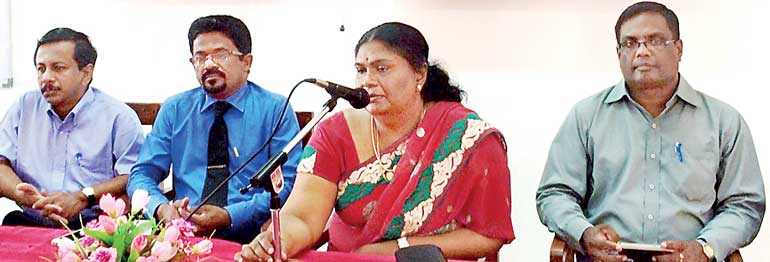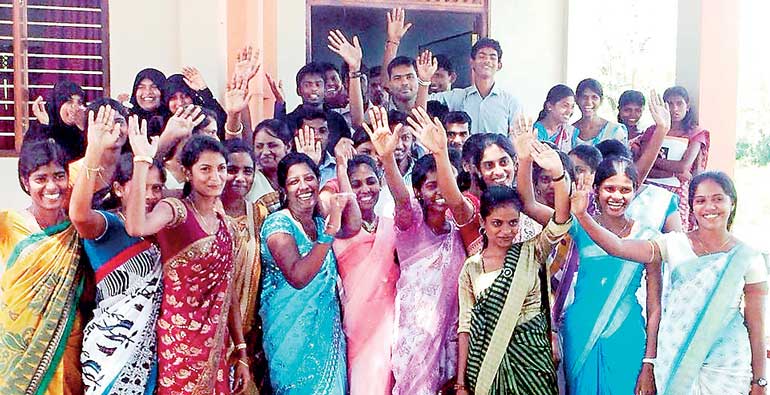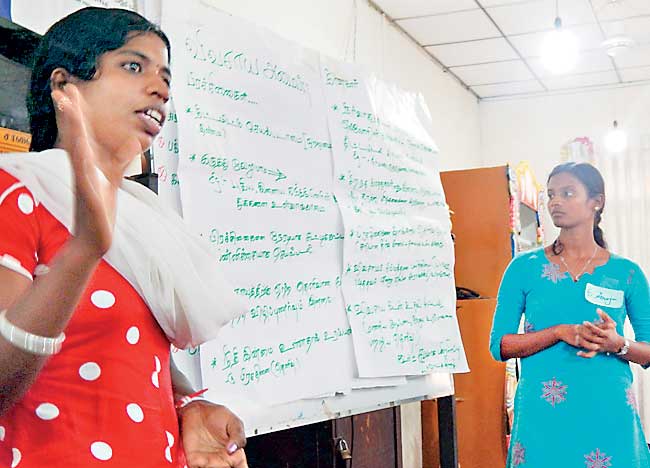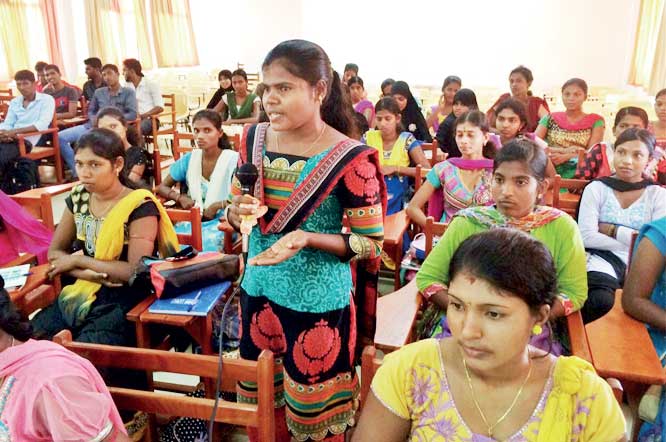Monday Feb 23, 2026
Monday Feb 23, 2026
Wednesday, 27 May 2015 00:11 - - {{hitsCtrl.values.hits}}

Inauguration of the program in Batticaloa (from left): Director Planning Nedulychiyan, Divisional Secretary Manmunai North S. Thavaraja, District Secretary Batticaloa P.S.M. Charles, Dean of the Faculty of Business Studies, Vavuniya Campus Pushpanadan

Participants at the Youth Leadership Development Program in Vavuniya

Orientation program at the Youth Leadership Development Program in Mannar

A participant, Jayanthi from Kunani DS division speaks about her background and course expectations at the Youth Leadership Development Program in Batticaloa
The European Union (EU) together with the United Nations Development Program (UNDP) recently inaugurated a Youth Leadership Development Program (YLDP) in the Vavuniya, Batticaloa and Mannar districts, where over 250 youth will commence a three-month long course conducted by the University of Jaffna (UoJ). The Vavuniya Campus and the Eastern University have joined hands with the UoJ to implement the course in their respective districts. The course will later be replicated in four other districts.
This youth development program is carried out with funding provided through the European Union Support to District Development Program (EU-SDDP). The EU-SDDP with a total financial envelope of EUR 60 million aims at supporting the Government of Sri Lanka’s thrust for economic and social development in seven conflict-affected districts covering half a million people.
In the context of the YLDP, EU Head of Cooperation Libuse Soukupova said, “Reinforcing dialogue, promoting cooperation between the traditional education and innovative training sector, employers and public authorities is key to sustainable economic development. In this regard, I am very pleased with the intervention the YLDP is making in creating a new generation of youth leaders.”
Addressing the low participation rate of youth and women in decision-making process for community development, which in turn negatively affects their skills and career opportunities, the YLDP provides an opening that will help create a generation of leaders who could strengthen both local development as well as the inclusion of disadvantaged groups. After the three-month program, the selected youth would be able to provide business counselling service and other technical advisory support to the local entrepreneurs and community members. They will also be equipped with an understanding of how to strengthen good governance at community level and foster sustainable economic development in their districts. Furthermore, the community-based organisations that are represented by these selected youths would be better positioned to form partnerships with local government authorities and other development partners to enhance local economic development initiatives, with their youth leaders’ newly gained skills and competencies.
Commenting on the YLDP, UNDP Assistant Country Director Rajendrakumar Ganesarajah stated, “Youth who complete this course will be better able to market themselves for employment opportunities and become effective social mobilisers in their communities.”
The selection process was highly competitive, with only 400 youth, out of total 1,100 applicants, making it to the shortlist after the first review. The shortlisted participants attended a comprehensive orientation session where course expectations were discussed and team-building activity was conducted to enable them to get to know fellow course participants. Commenting on the program, a youth participant from Vavuniya, Shobana Arumugam exclaimed: “This is the first step towards the progress of youth leadership in my community, I am excited.”
Under the EU-SDDP program, UNDP is strengthening the capacities of local governance by providing technical assistance to grass-root level youth to engage in community development processes and to enhance networking with local government officers in a bid to improve accountability of local service providers.